Five years ago, leaders at several organizations serving youth in Elkhart County saw that too many kids experiencing behavioral and emotional challenges weren’t getting the help they needed. These children ended up getting expelled from after school programs, school and spending time in the juvenile justice system.
But the leaders believed that children could avoid going down dangerous paths if they had the support network and emotional and behavioral help that they needed. The leaders started meeting regularly to imagine how they could work together to better identify the behavioral health needs of children early on and build a support system to help them.

Ribbon cutting at the Partnership For Children
In 2015, Bashor Children’s Home, along with Big Brothers Big Sisters, Boys and Girls Clubs of Elkhart County, CAPS, Center for Community Justice, Five Star Life, Lifeline Youth Ministries, Oaklawn, Ryan’s Place, The Post, Tolson Center, The Crossing and YWCA, joined together to create the Partnership For Children.
“We don’t want these kids to fall through the cracks, where they’re expelled, or they go to jail. We want to make sure we intervene early to try to prevent these paths,” says Rebecca Shetler Fast, Director of The SOURCE, which manages the Partnership For Children. “That kind of visionary, collaborative approach really makes Elkhart County really unique across the region in how it serves the mental health needs of children.”
The SOURCE has been Elkhart County’s system of care for 25 years, a network of community-based services and supports working to provide early preventative and responsive services for children’s mental health needs. The Partnership For Children is unique because it focuses on prevention and early intervention through the combined services of the 12 partner organizations.

Candy Yoder and Rebecca Shetler Fast
A key strategy for early intervention is making sure that staff at the partner organizations have advanced training in a variety of mental health topics, which could include verbal de-escalation techniques, children’s mental health basics and cultural competency. The Partnership can efficiently organize and provide the training that partner organizations may not otherwise have access to.
“These community organizations typically have minimally trained youth workers, not clinicians with master’s degrees. When they’re met with a pretty high-level need with a child, they can’t meet that need alone,” Shetler Fast says.
Without advanced training, a person’s natural reaction may be to demand that the child change their behavior, which could escalate it.
“The training helps partner staff switch from ‘what’s wrong with you?’ to ‘what happened to you?’” says Candy Yoder, a founding member of the Partnership For Children and board member at The SOURCE. “It lets the child take a breath and change their behavior and gives the staff the training to know what to do next.”

Rebecca Shetler Fast
“We can be really innovative and individualized to the child and family. This is not a cookie-cutter service.”
— Rebecca Shetler Fast
Director of The Source
Yoder, who is also Chief Program Officer at the Community Foundation of Elkhart County, says that the training has been invaluable to the partner organizations. More than 980 workers have participated in training sessions since 2015, and 99 percent of them report that it has made a meaningful difference in their daily work.
“When employees are working with families or kids and they know that they’re at the end of what they can do and they feel like they can’t do more, that’s the worst feeling,” she says. “To have a higher level of expertise and to know that you can help makes a big difference.”
Partner staff are also able to reach out to mental health clinicians with the Partnership For Children who can provide a consultation and walk them through strategies to address a child’s behavior problem. This way, the child can stay in the community program at that organization, reducing the need for advanced care and interventions down the road.
Partner staff are also trained to understand early warning signs that a child may need clinical mental health interventions. In those situations, they can refer a child and their family to the Partnership For Children for a consultation and services.
“Our team of clinicians works to assess the child and the family and get at the root of the issue,” Shetler Fast says. If the child needs more services, Partnership For Children can provide immediate access to a team of behavior health specialists and resources to meet their needs. That could mean short term therapy, family meetings, skills training, or a referral to another community resource or partner organization.
“Our partnership for children model allows us to be innovative and individualized to the child and family. This is not a cookie-cutter service model,” Shetler Fast says. “We have an interdisciplinary staff that can work together to deliver the individualized services a child needs.” The SOURCE can also help pay for a child’s mental health services if needed.

Ribbon Cutting at the Partnership For Children
More than 371 children have been referred to the Partnership For Children since it began. Of those, 96 percent avoided or experienced reduced involvement with the juvenile justice system, school suspensions and other high-risk behaviors.
“When there are behavioral or emotional warning signs and kids don’t get the help they need, these kids are more likely to be push-ed through the school-to-prison pipeline, and they may never have access to mental health services until they are arrested,” says Shetler Fast. The inequity especially impacts children of color.
“Research and practice shows us that Kids of color, on average, get access to
mental health services later on, or they get labeled as ‘bad’ before they get help. Early intervention is where we can start addressing some of those equity issues,” Shetler Fast says. “If we can train front-life staff to recognize warning signs early on, we can more quickly respond and have the potential to change the pathway or trajectory for a child.”
A child must be a member of one of the partner organizations in order to receive the services through the Partnership For Children. The child can benefit from the programming provided by that organization, and the partner staff can identify if they need additional help.
“Partnership for Children is a program that fits well into a public mental health model. We want to start by doing we’re trying to do prevention work. That’s the most efficientand most economical,” Shetler Fast says. “The second level of public mental health intervention is harm mitigation (or addressing specific problems early on). At the top level, that’s where kids are getting diagnosed with mental health disorders and getting referred or specialty services). We want do everything we can do identify kids who need support early on, when we can still do prevention.
Ultimately, the Partnership’s goal is to help children and their families find pathways to more successful and healthier futures.
Partnership For Children is funded by grants from the Community. Foundation and federal grants, as well as partner organizations, Medicaid and private community donors. Helping children from birth to age 8 is one of the grant emphases for the Community Foundation for the coming three years, which fits with the Partnership’s focus on prevention and early intervention.
“So often, big problems are born out of unaddressed little problems,” Yoder says. “If you have a pebble in your shoe and you’re walking around all day and you wait all day to remove it, you could get a blister. But if someone can notice that it’s the pebble hurting you and say, ‘I can help you take your shoes off and we can help you,’ that makes a difference. For me, it’s about preventing human tragedy.”

Pete McCown speaks at the ribbon cutting
The photos from the giant ribbon cutting are courtesy of The Elkhart Truth. This story appeared in the 2020 Annual Report.


